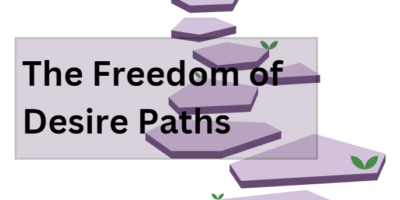As you may have noticed while walking around campus, there are empty chip bags and coffee cups blowing around with the breeze. While littering is reprehensible in itself, it would be a fair argument to say that over-packaging of everything is just as frustrating of an issue.
Plan on buying lunch in the plaza? The absolute minimum you’ll get in terms of packaging waste is napkins and cutlery if you sit down to eat somewhere. Even then, you are often given a plastic drinking straw, wrapped in paper, for your glass of water, or even worse, offering you a bottle of water. (Cue last straw pun.) It’s become a completely accepted part of life to just throw away almost half of the things that touch our hands. Just considering plastic drinking straws and bottled water, it’s insane how much waste is produced on the consumer’s end just by drinking water. If you’re in need of some sad humour, more than one company legitimately sells boxed water now as the ‘environmental alternative to bottles’.
It’s one thing to have packaged water if you live in an area without reliably safe tap water, but in the city of Waterloo, it’s quite frankly absurd that someone has the thought process of “Hmm, I’m thirsty, let me go spend 1700x the amount of money I spend on tap water to have a drink.” The lowest price of bottled water I’ve found through vigorous internet searching is $2.00 CDN / L of water. In the region of Waterloo, tap water costs $0.017 / L (City of Waterloo, 2016). Furthermore, most major cities test their water quality every 4-6 hours. Water bottling companies? No regulations exist for the frequency or quality of product testing, and the industry is entirely self-monitored (CBC, 2014). None of the data from these tests is required to be made public, and in addition to this, there have been dozens of quiet recalls of bottled water in the past decade, citing everything from arsenic contamination, bacterial growth, mould, and even glass found in the water (The Polaris Institute, 2014).
A second major issue with purified water is the lowered, or lack of fluoridation and other minerals. In a University of Calgary study comparing dental decay before and after the city removed fluoridation from its water treatment process, very strong evidence was found that suggested the rapid decline in the dental health of children was caused by the lack of fluoride in the city’s water (UCalgary, 2016).
Aside from emergencies, there is absolutely no reason for daily [disposable] water bottle use if you live in KW region. Or quite frankly, any other major Canadian city.
Knowing this makes it so frustrating to see the dozens of broken, crumpled plastic water bottles littering most areas of Waterloo that I frequent, including Waterloo Park. The closest legitimate counter-argument for not banning the use of bottled water altogether is that it is frequently the only healthy beverage option if you are purchasing something to drink.
Let’s take UW campus as a test case for this idea–between the C&Ds, SLC, South Campus Hall, and other food retailers, water typically is the only healthy beverage option. The major caveat to this argument, however, is that it relies on the assumption that an individual must purchase a beverage. By my own searching, there is a water fountain within 10m of any beverage retailer on campus in CPH, DC, SLC, Biology, and EIT. In Dana Porter library, there is a water fountain within 15m of the first floor coffee shop. While I haven’t checked to see if there are water fountains in other buildings with beverage retail, I would be willing to bet that there are.
The facts: City of Waterloo tap water is just as safe, if not safer than bottled water.
My opinion: It is irresponsible (and negligent) to knowingly continue a wasteful practice when you have the resources and capacity to change over to a sustainable process, like a reusable water bottle in lieu of disposable bottles. A reusable water bottle costs as little $9, and if that is still too expensive, use a mason jar or carry around a cup.




Leave a Reply